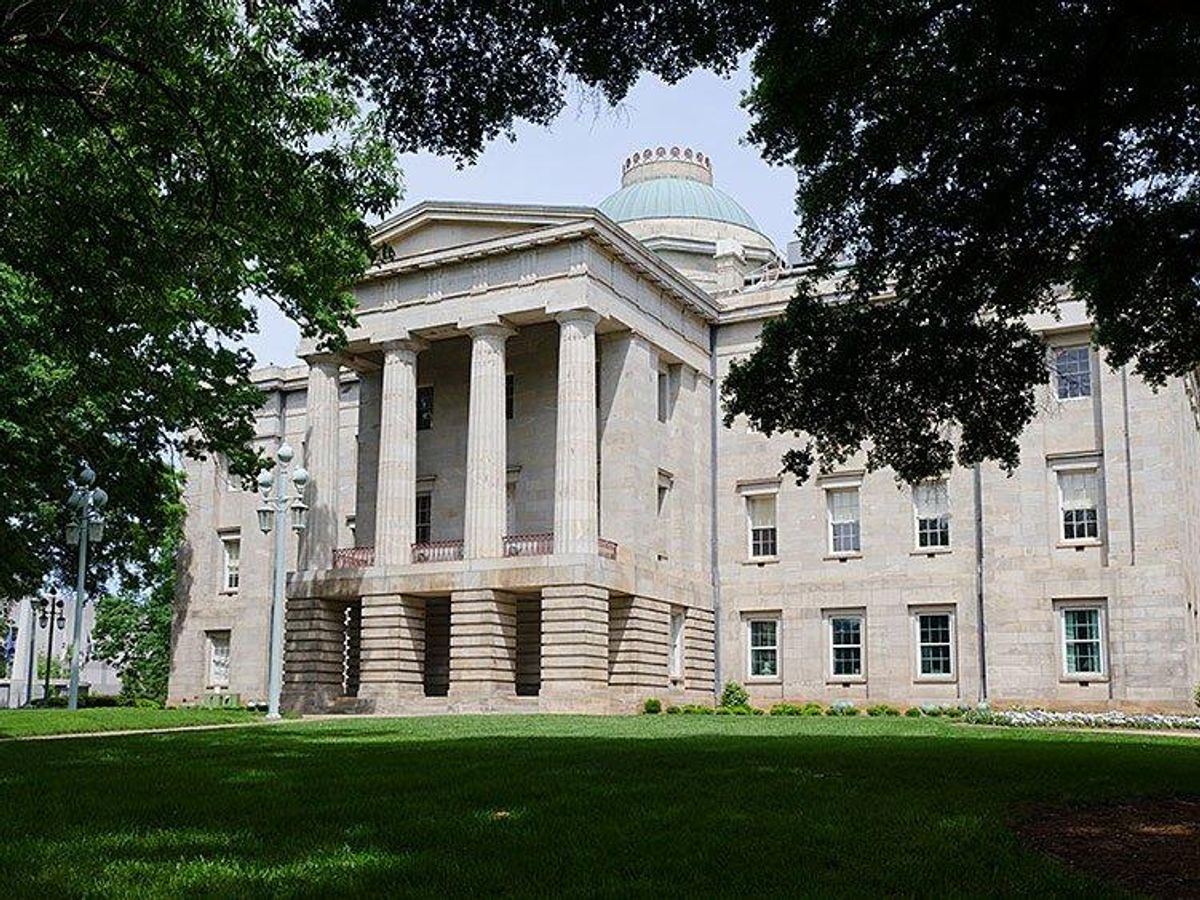Less than a week after North Carolina officials rescinded LGBT-specific nondiscrimination protections following a smear campaign against transgender people, three organizations are filing a federal lawsuit against the much-maligned HB 2.
The American Civil Liberties Union, ACLU of North Carolina, Lambda Legal, and Equality NC plan to announce the lawsuit on Monday at noon Eastern. The organizations are filing the case in the U.S. District Court for the Middle District of North Carolina "on behalf of several organizations and individuals who will be harmed by the law," the groups said in a joint statement on Sunday.
In their background on HB 2, the groups take aim at the legislation -- which strikes down LGBT-inclusive municipal antidiscrimination ordinances and prohibits cities from adopting any new ones -- for not only being discriminatory, but financially improper.
"The North Carolina General Assembly convened a $42,000 special session on Wednesday to pass into law a sweeping measure that prevents local governments in the state from extending nondiscrimination policies to LGBT people and requires restroom access in public facilities, including schools, based on birth assigned sex regardless of a person's gender identity and lived gender. It also jeopardizes the more than $4.5 billion in federal funding that North Carolina receives for secondary and post-secondary schools under Title IX, which prohibits sex discrimination in educational institutions receiving Federal funding, including discrimination against transgender individuals."
HB 2 was rammed through the N.C. legislature and signed by Republican governor Pat McCrory on Wednesday, following conservative outcry over a recently-passed, now-overturned, LGBT nondiscrimination ordinance in Charlotte. The city's new law would have allowed transgender people to use public restrooms that correspend with their gender identity, but was painted by opponents as a "bathroom bill" allowing sexual predators into vulnerable spaces.
Reaction to the sweeping HB 2 was swift, with editorial boards and presidential candidates denouncing the legislation, and several influential corporations discussing a boycott of the state.



















































































